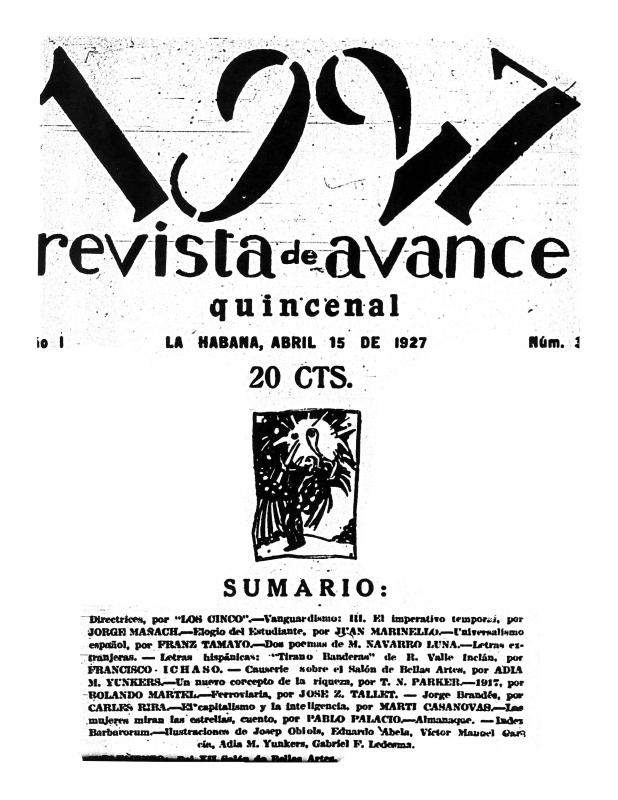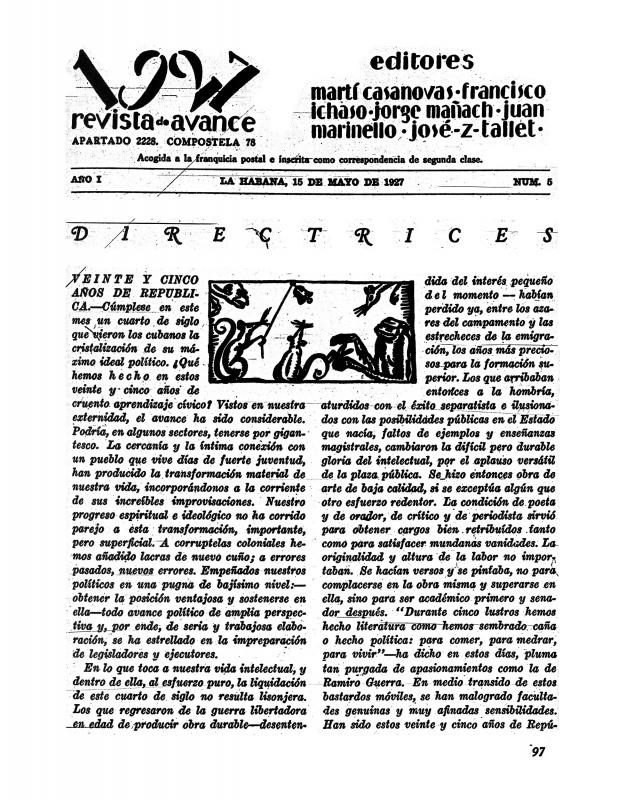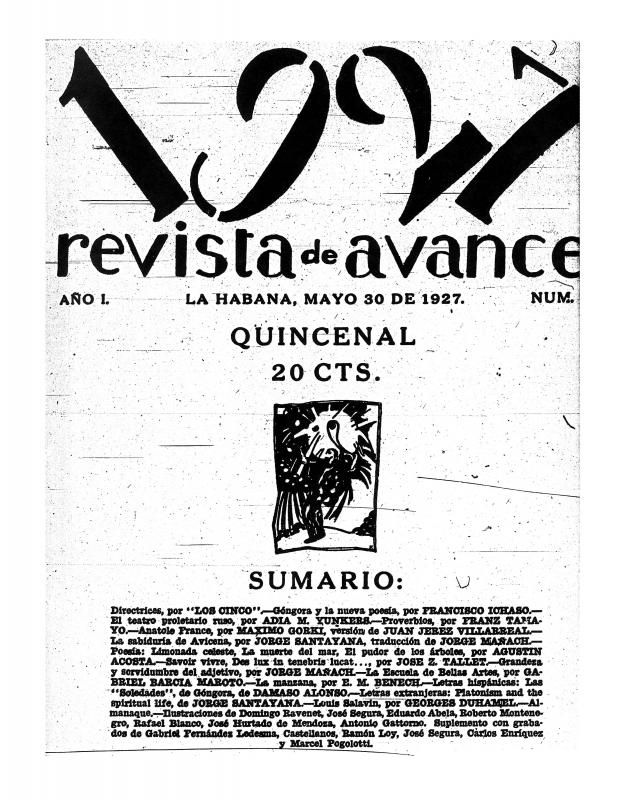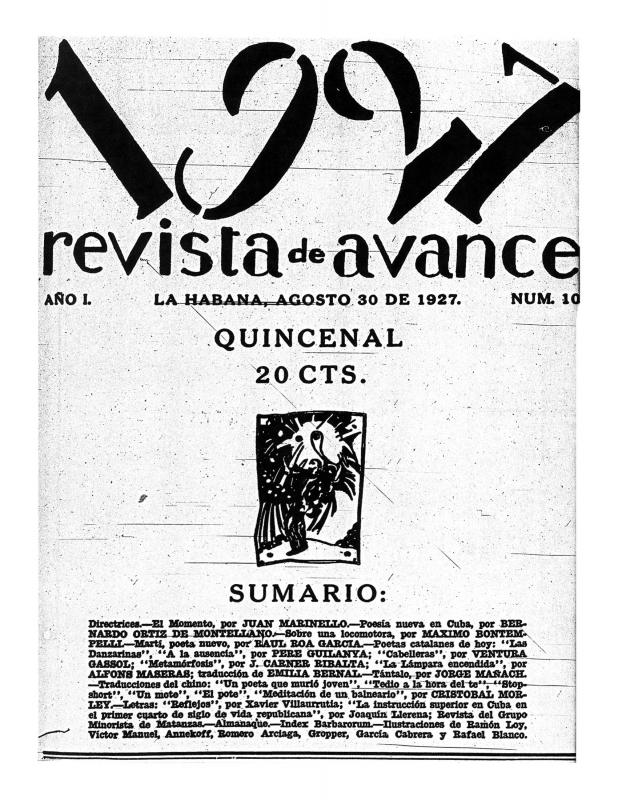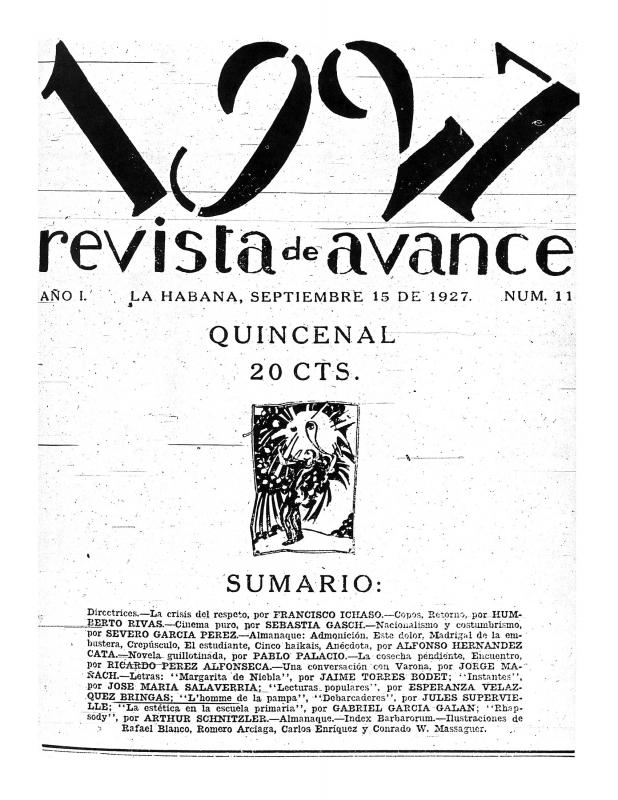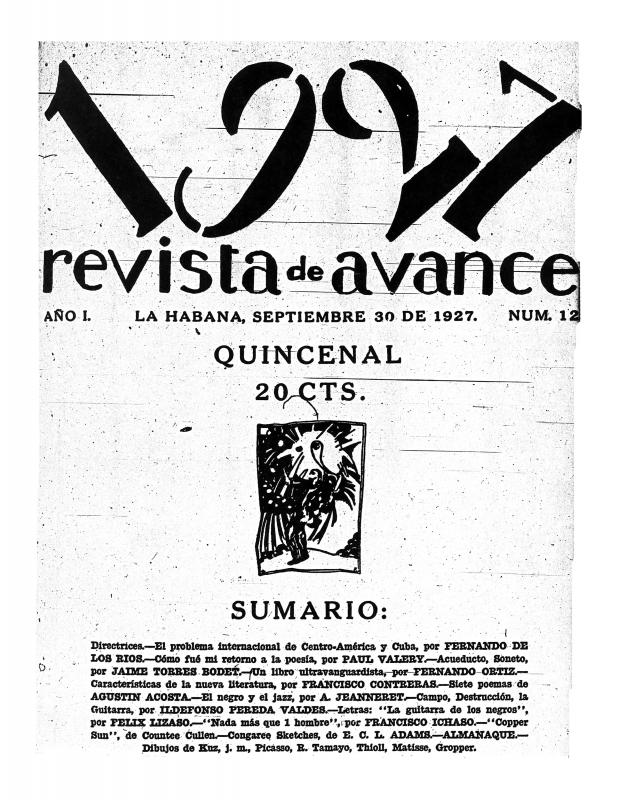The Revista de avance had a section entitled “Guidelines,” which included short informative articles or comments on matters or events related to the focus of the journal. In this section, the editors informed the reader about changes, clarification, and comments on previous articles or matters of interest, in the form of brief articles. In this issue, one particularly important article is the editorial that reports on the detention by government authorities of the journalists and avance editors José Z. Tallet (1893–1989) and Martí Casanovas (1894–1966), who were accused of carrying out communist activities, acting against the Machado government. The Revista de avance editors took the opportunity to claim the right to freedom of expression, one of the principles mentioned in the Grupo Minorista Declaration. By that time, the Machado government had already deployed a plan to repress young intellectuals who questioned and denounced governmental actions. In fact, these young thinkers were beginning to be radical in their actions as well as their opinions.
The Institución Hispano-Cubana was founded in 1926 by the Cuban ethnologist and historian Fernando Ortiz. This institution sought to maintain cultural and intellectual ties between Cuba and Spain, promoting cultural exchange through a program of lectures and scholarships for young adults. Many of the Spanish intellectuals who ended up in exile during the Spanish Civil War were welcomed by the institution and invited to give lectures.
[For further reading, see in the ICAA digital archive other “Directrices” published on: March 30, 1927 (doc. no. 1298727); April 15, 1927 (doc. no. 1298763); April 30, 1927 (doc. no. 1299725); May 15, 1927 (doc. no. 1299773); May 30, 1927 (doc. no. 1299841); August 30, 1927 (doc. no. 1299981); September 15, 1927 (doc. no. 1300019); and September 30, 1927 (doc. no. 1300074)].

